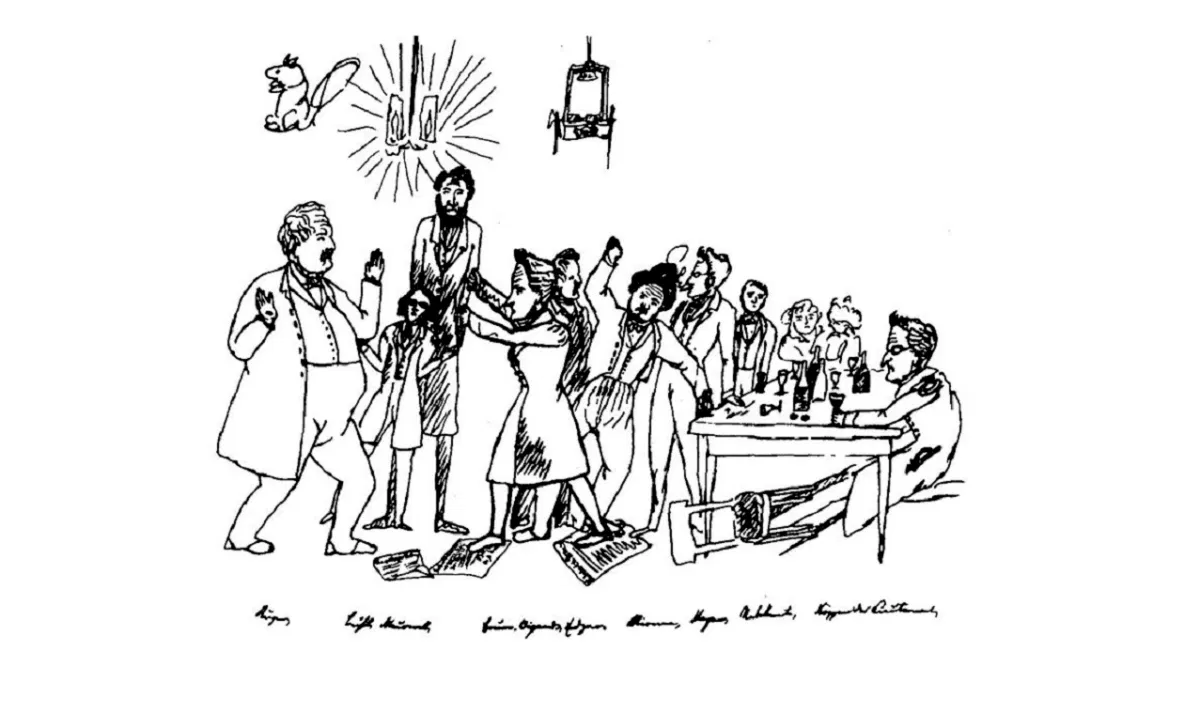Wir dokumentieren einen Text von norwegischen Genossen gegen den Individualismus auf englisch. Sollte einer unserer Leser uns eine Übersetzung auf deutsch zukommen lassen, werden wir diese gerne publizieren.
Smash Individualism and the Bourgeois Ego!
All revolutionaries grow up in the system that we stand in opposition towards. We grow up with a class background and a class position that influences our thinking. We grow up in a bourgeois society where the bourgeoisie’s thoughts are the ruling thoughts.
Therefore, we grow up incredibly influenced by capitalist individualism, and where the bourgeois ego is fostered. Liberalism’s struggle against the old era’s collectives (ancestry, tribes, extended family, feudal relations) was first waged under bourgeois individualism’s banner. Karl Marx pointed out that this was a false liberation, and that freedom means, “under the present bourgeois conditions of production, free trade, free selling and buying,” and it is not a freedom for the proletariat.
The opposite of bourgeois individualism is not a “radical individualism”, as the pettty-bourgeoisie wish for. It is not anarchy, but rather the collective and unified action that liberates the proletariat. Stalin said that anarchism believes in liberating the collective through the liberation of the individual, while communists see that it is only through the liberation of the collective that the individual truly becomes free. These are not two different ways to the same goal, but both different goals and different ways.
The proletariat’s standpoint, and particularly the proletarian revolutionary’s standpoint, is the complete subjugation of the individual to the collective. The communist ideal is to unite with the class, with the masses of people, and to submit oneself to a united discipline. We stand for democratic centralism, mainly centralism. Unity is our strength. The proletariat’s only advantage is that we are the largest and strongest class, but this strength can only come to fruition if it is united in a common struggle, in a common action. A majority that is split is not a majority, but rather many splintered minorities.
All of our class’s history of struggle shows that we win when we unite ourselves under a centralized leadership that stands at the fore for revolution. And on the other hand, we can only lose when the leadership is liquidated, or is separated from the masses, and when the enemy exploits our differences and our subsequent confusion in order to split us.
To unite oneself is to submit oneself. It does not mean that you always do what you want when you want. It means submitting one’s bourgeois ego, one’s own ambitions on behalf of one’s own person, and to see where the hunt after career, body image pressures, and the nagging about self-realization have their origin. Bourgeois egoism does not come from the bourgeois mode of production on its own, from capitalism, but with its particular focus on competition, purchase and sale, supply and demand, and the bourgeois illusion of “free choice”, “free will”, and “pulling oneself up by the bootstraps”.
It is incompatible with true revolutionaries and proletarian organizations to work on solo projects and advance oneself as a person at the expense of the collective, united, and organized action. This is by no means a condemnation of those individual people, who are the products of this society and all of their growth and experiences, who go their own ways and try to do their best for socialism and the revolution. The first step is the most important one. To put oneself in movement is a prerequisite for being able to contribute. But the next step must be to unite oneself with the class, to organize with the class, and to combat individualism and the bourgeois ego by all means, so that one can enter in the conscious collective where one submits oneself to the collective, the class’s leadership, and the revolutionary leadership.
The Communist Party is a party where communists voluntarily unite. But by doing so, one consciously waive away volunteerism from that point forward. One commits their lives to the party and to the revolution, and those who give their lives also give their volunteerism.
We do not foster the collective as a goal in itself. To submit oneself is not some virtue that is above the classes. It is not an “eternal morality”. It is a concrete answer to the demands of the revolution. Our class can only liberate itself through revolution. Revolution is only possible through disciplined and united action, under a fixed leadership. To submit oneself is to break with the bourgeois life and to discard the bourgeois ego. Not because it is good in itself, or because it is a goal in itself, but because it is necessary in order to reach the grand goal of a communist world. A world where all states and parties wither away, along with the abolition of classes. A world where the individual is truly free, because all of humanity has been freed from class society forever.
Nor will individualism flourish under communism in the same bourgeois manner. Self-assertion and self-cultivation belong to capitalism, and will disappear along with the capitalist mode of production. Engels said that freedom is an insight into necessity. When we are familiar with all limitations and necessities, we can act in accordance with these, and it is only then that we are truly free.
On the way there, there is a true freedom in casting away the bourgeois ego itself, the bourgeois pressures and competition, and in indulging oneself in one’s entirety with the proletariat and the revolution. The oppressed have had experiences with this again and again. It is only when one stands shoulder to shoulder with one’s comrades, grasp the gun, and seize power for one’s own class that one is truly free in this world.









